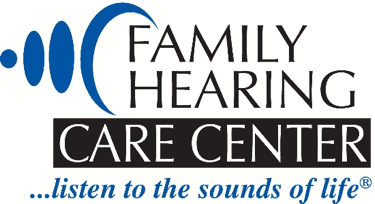
Unveiling the Truth: Common Misconceptions About Hearing Loss
Hearing loss is a prevalent condition that affects individuals across different age groups and backgrounds. Unfortunately, there are several misconceptions and myths surrounding this topic that can hinder proper understanding and awareness. In this informative blog post, we will debunk these common misconceptions and shed light on the realities of hearing loss. By dispelling these myths, we aim to promote accurate information and foster empathy for those living with hearing loss.
Myth: Hearing loss is an exclusively age-related problem.
Fact: While it is true that hearing loss is more common among older individuals, it can affect people of all ages. Factors such as noise exposure, genetics, certain medical conditions, and medications can contribute to hearing loss in younger individuals. Understanding that hearing loss can occur at any stage of life is crucial for increased awareness and proactive measures.
Myth: Hearing loss is a minor inconvenience that can be ignored.
Fact: Hearing loss is not a minor inconvenience; it can have a profound impact on an individual’s overall quality of life. Beyond communication difficulties, untreated hearing loss can lead to social isolation, cognitive decline, depression, and decreased work productivity. Recognizing the significance of addressing hearing loss promptly is essential for maintaining well-being and an active lifestyle.
Myth: Hearing aids are only for those with severe hearing loss.
Fact: Hearing aids are not limited to individuals with severe hearing loss. They come in various styles and can be customized to address different levels of hearing difficulty. Modern hearing aids offer advanced features such as noise reduction, directional microphones, and wireless connectivity, greatly enhancing the quality of life for individuals with mild to moderate hearing loss as well.
Myth: Hearing loss is an inevitable part of aging and cannot be prevented.
Fact: Although some types of hearing loss may be unavoidable, many cases can be prevented. Protecting your ears from loud noises, using earplugs or earmuffs in noisy environments, and practicing safe listening habits are effective measures in preventing noise-induced hearing loss. Seeking prompt medical attention for ear infections and limiting the use of headphones or earbuds also contribute to maintaining healthy hearing.
Myth: Hearing loss is always accompanied by noticeable symptoms.
Fact: Not all types of hearing loss exhibit obvious symptoms. In certain cases, hearing loss may occur gradually, making it challenging to recognize the decline in hearing ability. Regular hearing evaluations conducted by qualified audiologists can help identify potential hearing loss, even if symptoms are not readily apparent.
Myth: Hearing aids fully restore normal hearing.
Fact: While hearing aids can significantly improve hearing, they do not restore hearing to its natural state. Hearing aids are designed to amplify sounds and enhance speech comprehension, but they cannot replicate the full range of natural hearing. It is important to have realistic expectations when using hearing aids and work closely with audiologists to ensure proper fitting and adjustment for optimal benefit.
Myth: Noise exposure is only a concern for individuals with hearing loss.
Fact: Noise-induced hearing loss can affect anyone, regardless of their current hearing status. Prolonged exposure to loud noises without adequate protection can damage the delicate structures of the inner ear. It is vital for everyone to take precautions and limit exposure to excessive noise levels to maintain healthy hearing throughout their lives.
Nurturing Understanding and Support
Dispelling the myths surrounding hearing loss is crucial for fostering accurate knowledge, empathy, and support for individuals living with this condition. Hearing loss can affect people of all ages, and its impact extends beyond communication difficulties. By debunking these misconceptions, we can create a more inclusive society that values and supports individuals with hearing loss.
Addressing hearing loss promptly, adopting protective measures against noise exposure, and maintaining regular hearing evaluations are essential steps in preserving our hearing health. Let us embrace accurate information, cultivate empathy, and work together to build a world where hearing loss is truly understood and accommodated.
We hope you found this information helpful. If you have any questions about your hearing, hearing loss, or would like to schedule your next hearing check up, please contact us. Our friendly staff of hearing health care professionals are ready to assist you with all your hearing related needs.
